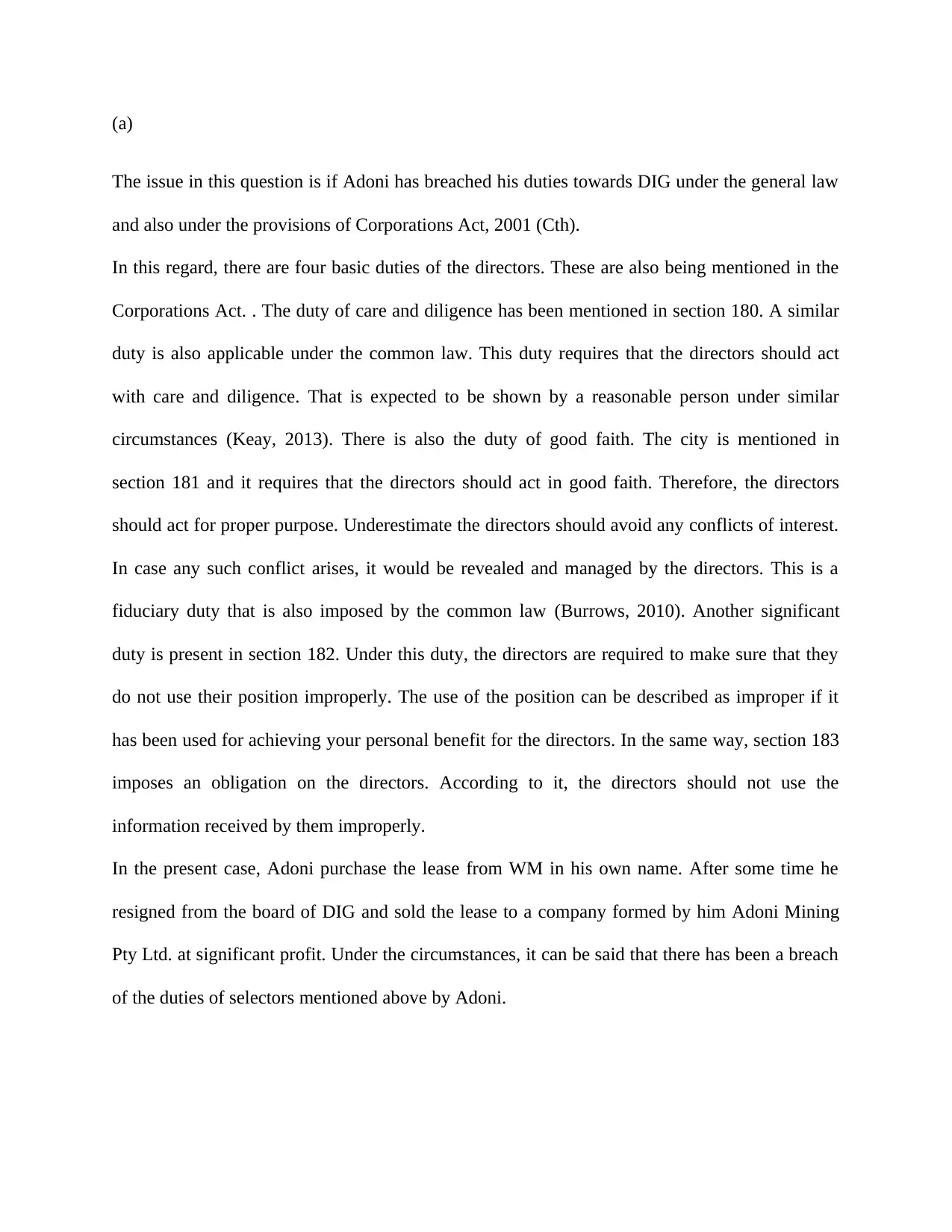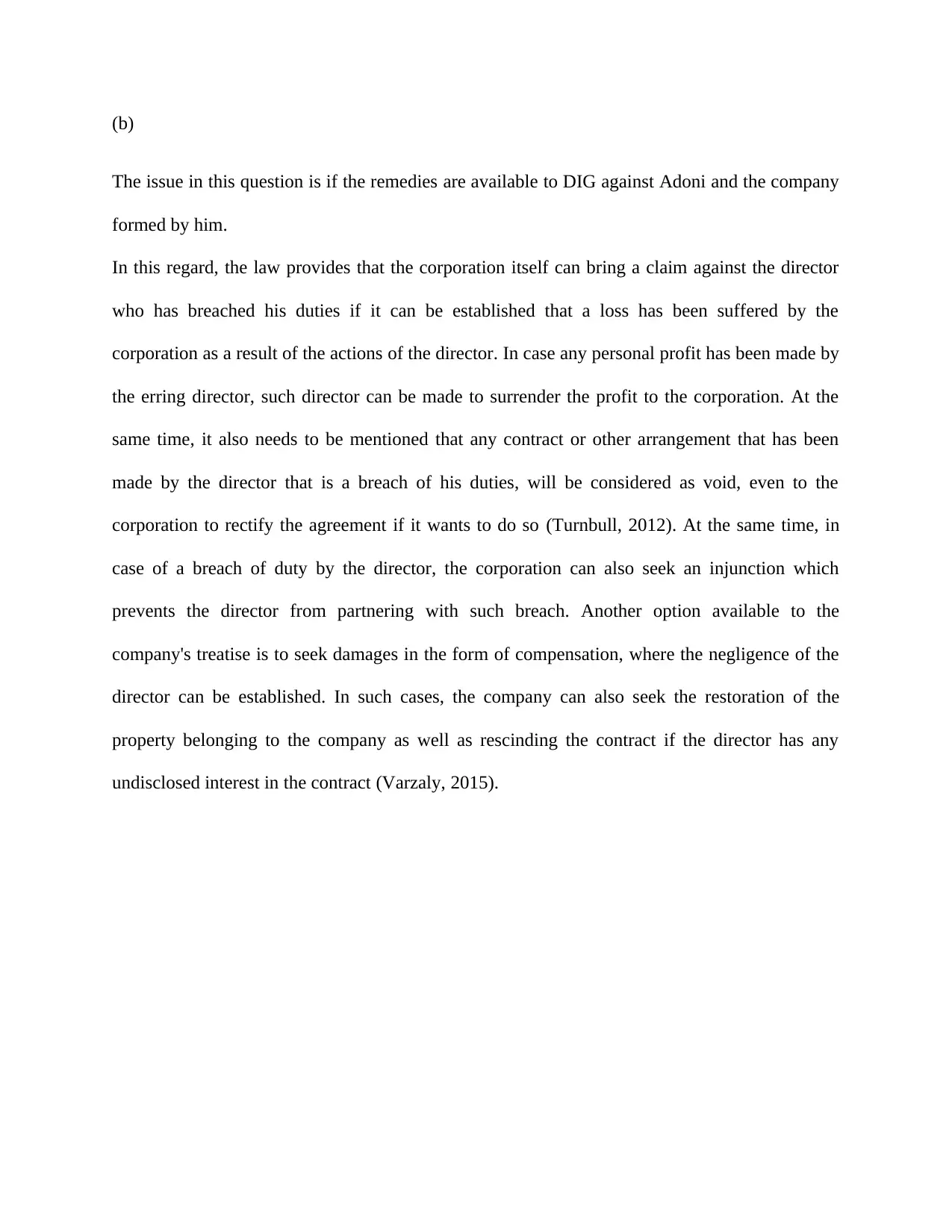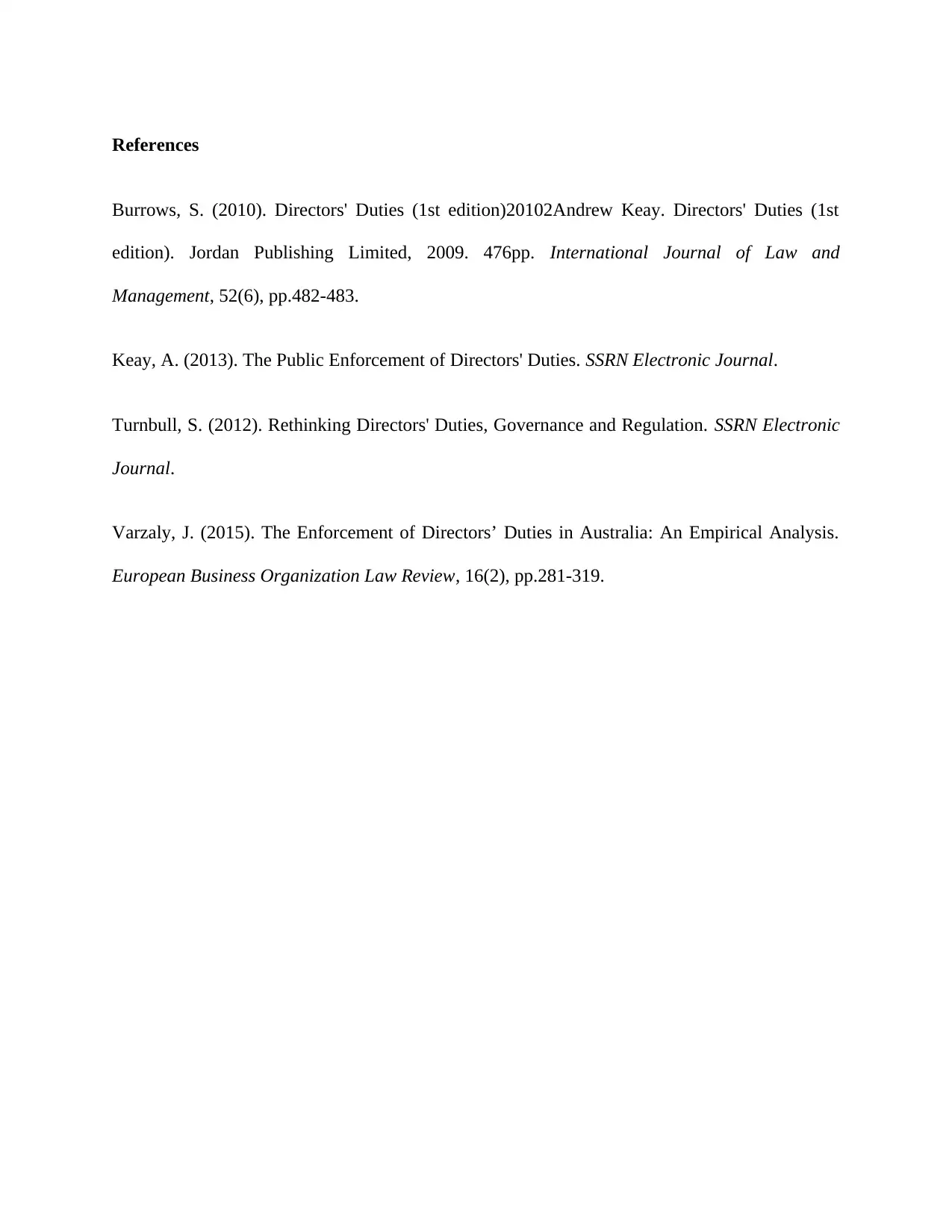Legal Analysis: Director's Duties, Breach, and Remedies - Adoni
VerifiedAdded on 2023/03/30
|3
|612
|55
Case Study
AI Summary
This case study examines whether Adoni, a director of Desert International Gold NL (DIG), breached his duties under general law and the Corporations Act 2001 (Cth). It outlines the four basic duties of directors: care and diligence (section 180), good faith (section 181), proper use of position (section 182), and proper use of information (section 183). The case highlights Adoni's purchase of a lease from Western Mining NL (WM) in his own name, his subsequent resignation from DIG, and the sale of the lease to his own company, Adoni Mining Pty Ltd, at a significant profit, suggesting a breach of his duties. Furthermore, it explores the remedies available to DIG against Adoni and his company, including claims for losses suffered by the corporation, surrender of personal profits, injunctions, damages, restoration of property, and rescission of contracts. The analysis references key legal sources to support its conclusions.
1 out of 3










![[object Object]](/_next/static/media/star-bottom.7253800d.svg)